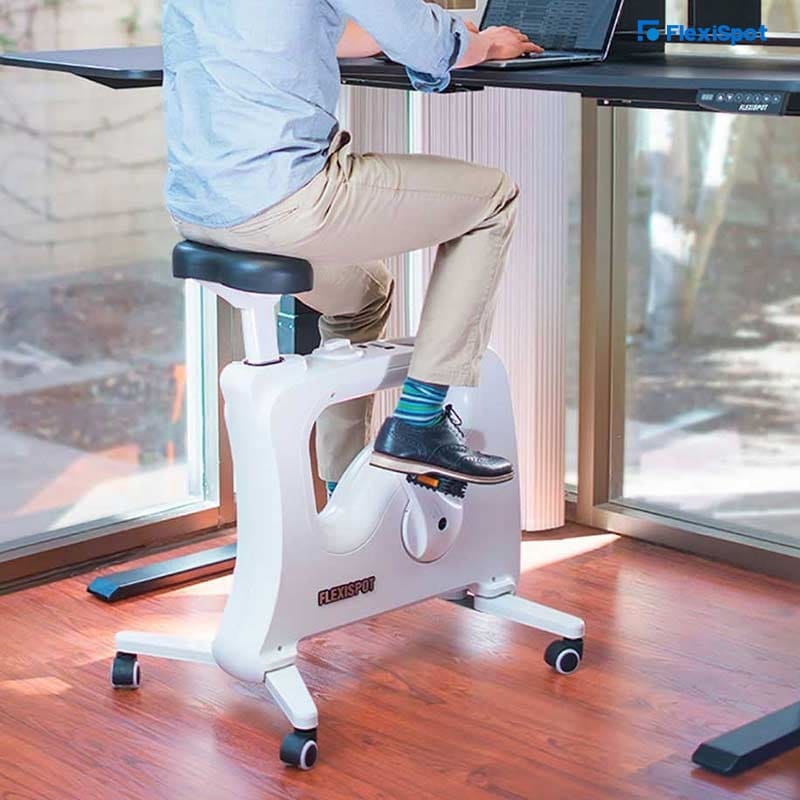Workplace stress has become increasingly common since the start of the pandemic. People initially thought working from home would ease the stress and anxiety they usually felt in their offices, but the reality is quite the opposite. A study conducted by Businesswire revealed that 48% of employees are experiencing higher stress levels over the past year. Additionally, another survey showed that most employees are finding themselves in increasingly stressful situations at work around 60% of the time.
American Psychological Association's annual Stress in America survey has repeatedly shown work to be cited as a major source of stress for most of the population. This is a result of low salaries, excessive workload, challenging tasks to be done in a small amount of time, few growth opportunities, and little to no social support.
With such dire statistics, it is now more important than ever to prioritize your mental health over your work responsibilities. You can only perform as well as you feel on the inside. If there are excessive amounts of stress bubbling inside you, ready to make you break down or burn out at any moment, chances are your work productivity will be highly limited.
So, let's take a step back and learn some excellent ways to manage your workplace stress better.
Best Ways to Manage Workplace Stress
1. Take Time to Step Away
The absolute best way to deal with workplace stress is to step away from it. When you try to deal with the things causing you stress instantly, chances are your mind will feel more muddled than ever. You are likely to get more stressed as you try to focus on dealing with your stress triggers, and it can even lead to an anxiety attack!
To make sure things don't progress in such a direction, you need to learn to simply step away from your stress triggers and return to them when you have calmed down. Remember, a few minutes' worths of a break from work every now and then won't harm your performance. It might just improve it when you return feeling refreshed and calm!
Employees who don't take breaks when workplace stress gets too much and instead try 'pushing through' are at increased risk of suffering from burnout. It can leave you unable to work for days on end, which can be a huge blow to your performance levels.
Therefore, it is always better to take a 5-minute break after every 75-90 minutes of work. Take a walk around the office, fill up your water bottle and talk to a few coworkers. You can even head out of the building to breathe in the fresh air before returning to work. All of these activities will do wonders to help you manage your stress better and handle demanding tasks with more ease.
2. Exercise Regularly, Even if it's at Work!
When you're trying to battle against workplace stress, try to keep away from unhealthy coping mechanisms like raiding your snacks drawer or smoking. This will only create more problems for you in the long run and further add to your already heightened stress levels.
An excellent and truly effective way to fight high-stress levels is through exercise. Not only does it do a great job of bringing down stress and anxiety, but it will also make you look and feel great. What more could a person ask for?
Employees often complain about being too tired to head to the gym after work or even to go for a jog around the block. So, why not bring the gym to work with you? FlexiSpot has designed numerous tools and equipment that allow you to exercise in the office, with no interruptions or distractions to your workflow!
One of their best products is the Under Desk Bike, which you can get at just under 300 bucks. This standing desk bike fits in perfectly with any office space, no matter how big or small. It is compact and complements any sit-stand workstation;
This bike is a great tool to help you practice your standing desk exercises. It is built with premium quality cushioning to offer increased comfort, has an LCD display to track your workout progress, and is fitted with a whisper-quiet pedaling system so you can continue working as you exercise!
3. Practice Meditation to Cope With Stress
One of the best ways to curb increasing levels of stress is through meditation and mindful living. Meditation is an excellent tool to ease stress and anxiety, regulate your mood, and promote relaxation. It even helps in lowering blood pressure and calming down your mind so you can think more clearly and let go of all the worries that may be troubling you.
Meditating doesn't require you to have a separate corner to go into for practice. You can do it right on your desk or even seated on the ergonomic stool for your standing desk. Just pause everything for a few minutes, turn off your computer screen and close your eyes the next time you feel like your mind is filling up with stress.
Take a deep breath in, hold it for 2 seconds and release it slowly. Repeat this a few times and try to focus on your breathing only. This will help you clear out your mind and slow down your high-paced thoughts. You can even practice guided imagery to help you relax.
Once you have successfully cleared out your mind, try to prioritize your tasks and deal with them one by one. Trying to do everything together will only leave you overwhelmed and unable to manage it all. So, be smart about how you manage your workflow and don't let workplace stress consume you.
4. Establish Workplace Boundaries
In today's digital world or work, employees are facing increasing pressure to be available beyond their usual 9 to 5s. More and more employees are putting in overtime, especially when working from home. Bosses seem to have the mindset that everyone is stuck indoors anyway; they might as well make the most of it by getting some extra work done.
This is a leading cause of increased workplace stress, and the best way to handle this is by establishing some boundaries. Make it clear to your managers and team leads that your boundaries have to be respected and that you aren't willing to compromise on them.
Setting boundaries should include clocking in and out on time and refusing to make yourself available afterward unless it is a truly urgent matter. Stop checking your email once you're timed out and put your work phone on silent mode. You have done enough work for the day; it is time to relax and unleash some of the stress built-up in your body as you check off one task after the other from your daily schedule.
5. Ask for Help When You Need It
The workplace environment of the 21st century is one of increasing stress due to cutthroat competition. Everyone is trying to reach for higher positions and better opportunities and putting in more than their all to get to the top. It can be quite easy to lose yourself in this race as you try to keep up with the competition.
That is why it has become extremely important to recognize when you need help and not be ashamed to ask for it. You can try to look for a mentor within your workplace or even hire a life coach to cheer you on from the side. A guide, in any form, will help you stay on track to being your best self in any work position. They will aid you in recognizing your goals, remembering your dreams and passions, and working towards things that truly drive you forward.
6. Make Time for Non-Work Related Activities
Numerous researches have shown that employees who regularly participate in non-work activities perform better and are more productive in the workplace. This may sound counterintuitive, but when you spend all day surrounded by work-based tasks only, chances are they will limit your thought process and stop you from coming up with out-of-the-box solutions. It can hinder your productivity levels and eventually lead to burnout, none of which will serve you well in your next appraisals meeting.
Therefore, it is absolutely essential for employees to enjoy some non-work-related activities. Once you have clocked out of work, it is time to stop thinking about your professional life and focus on your personal growth. Enjoy your hobbies, seek out like-minded people, and volunteer your time with causes that you support.
All of these are great ways to reduce your stress levels. They offer you a fresh perspective on life and make you feel enlightened on a daily basis. These activities are also a great way to meet new people and learn more about yourself and the world around you.
When you go back to work after enjoying such activities, you will feel refreshed and ready to take on any task that comes your way. The best part is that you probably won't feel too stressed out to work anymore!





